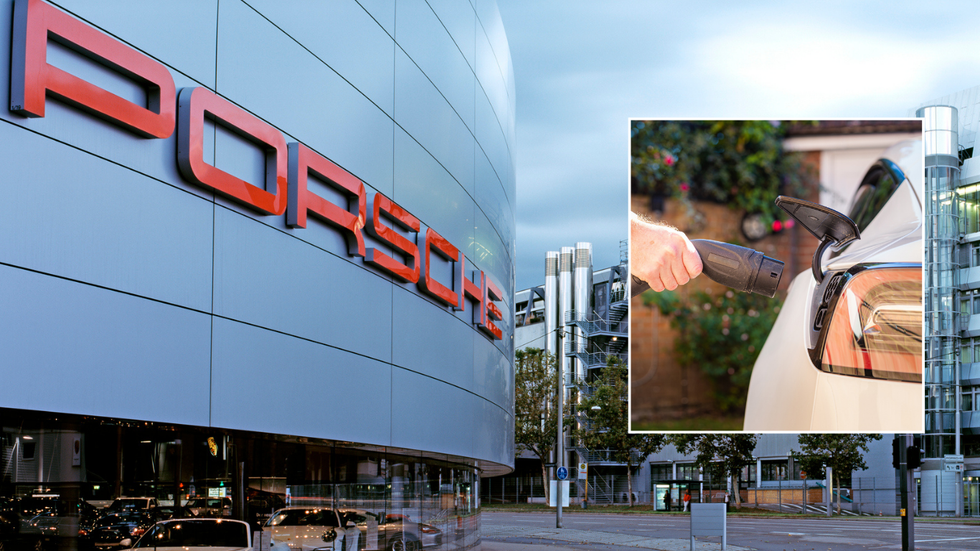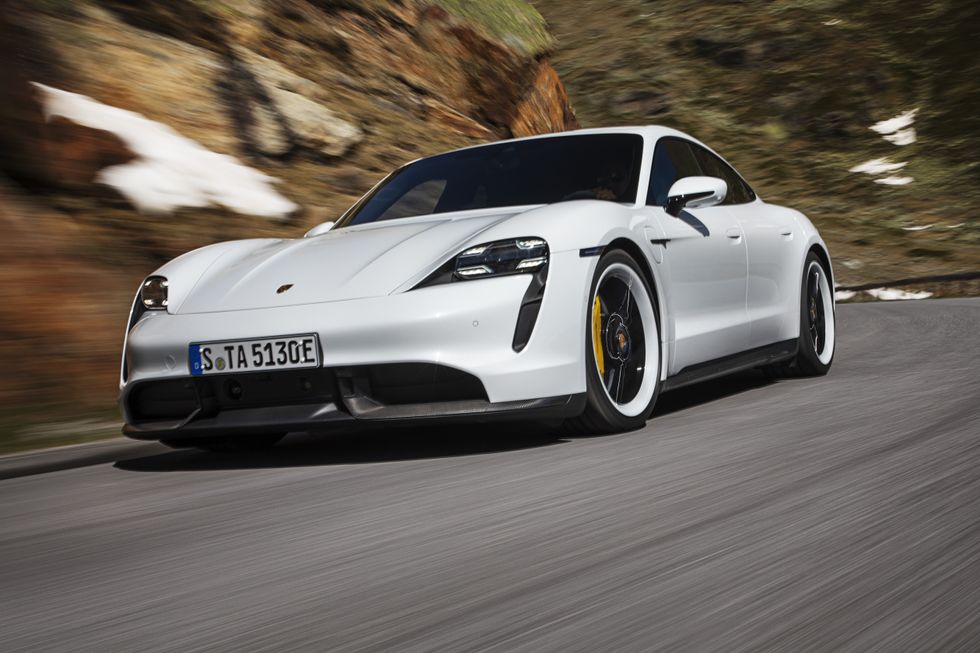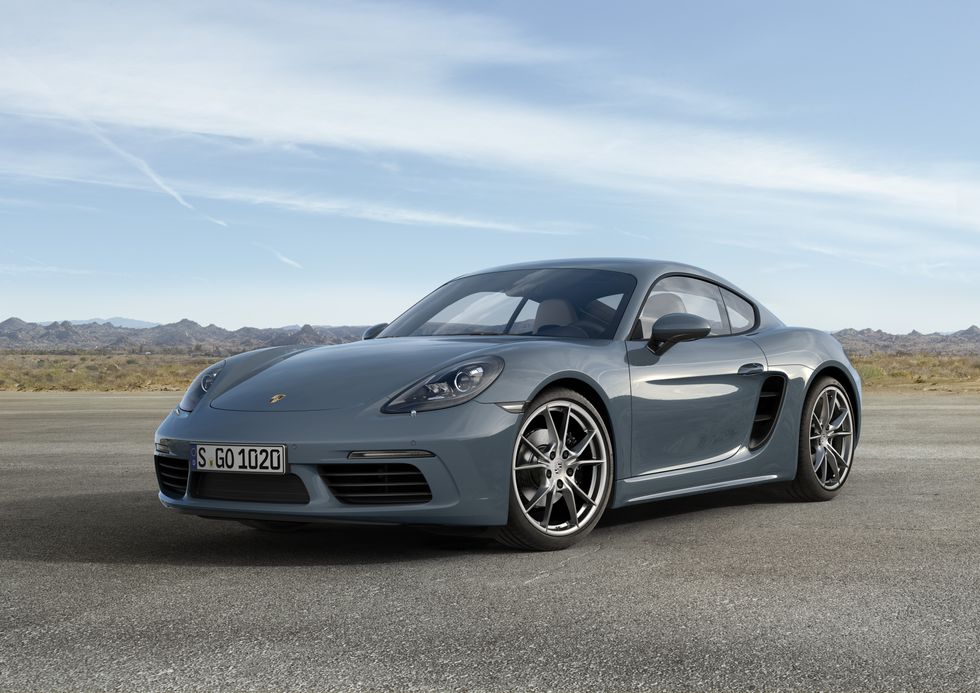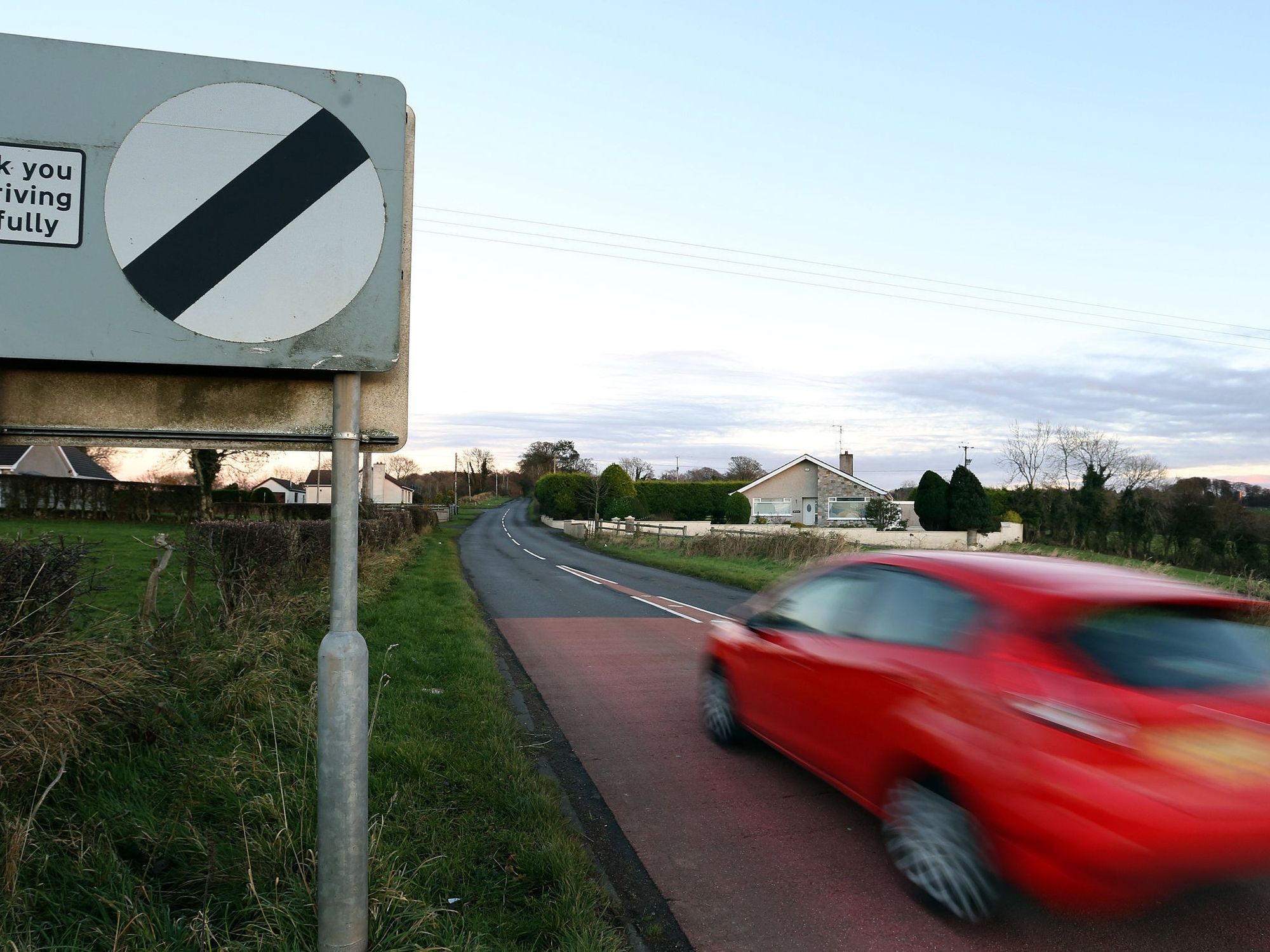Porsche backs away from electric cars in favour of petrol models putting hundreds of jobs at risk

WATCH: Eamonn Holmes weighs in on electric cars as he declares 'nothing about them is attractive'
|GB NEWS

The move away from electric vehicles will put roughly 200 jobs at risk
Don't Miss
Most Read
Latest
German car giant Porsche has abandoned its ambitious plans to manufacture electric vehicle batteries, instead opting to stay with internal combustion engines.
In addition to the move away from greener vehicles, the company is also reportedly searching for a new chief executive to replace Oliver Blume, who currently leads both the sports car manufacturer and parent company Volkswagen.
The German automaker revealed it would cease production activities at its Cellforce subsidiary, instead concentrating solely on research and development of battery technology.
**ARE YOU READING THIS ON OUR APP? DOWNLOAD NOW FOR THE BEST GB NEWS EXPERIENCE**
Mr Blume confirmed the decision was driven by insufficient volumes and "a lack of economies of scale", prompting the decision to end its own production of battery cells.

The German car giant is currently planning to shift its focus away from electric models
|GETTY
Multiple senior company sources told German business magazine WirtschaftsWoche that discussions with potential CEO candidates are progressing, with both internal and external contenders under consideration. The appointment is anticipated to be revealed this autumn and implemented by early 2026.
Reports have warned that the restructuring will result in significant workforce reductions, with the IG Metall union indicating approximately 200 of Cellforce's nearly 300 employees face redundancy.
Porsche did confirm that some workers would transfer to PowerCo, Volkswagen's battery competence centre, which has offered to introduce suitable Cellforce staff to positions at its facilities.
However, the company emphasised that it would handle staff reductions in a socially responsible manner with more information released later this year.
 Porsche has announced plans to change its electric vehicle goals | PORSCHE
Porsche has announced plans to change its electric vehicle goals | PORSCHEDr Michael Steiner, Porsche's board member for research and development, acknowledged the difficult decision: "It is with great reluctance that we take this step, and we are aware that the employees of the Cellforce Group have put their heart and soul into the development of high-performance batteries."
The Kirchentellinsfurt facility, established in 2022 as a "start-up factory" with planned production capacity of 1 GWh, will now focus exclusively on research activities.
The reversal reflects deteriorating market conditions globally, with electric vehicle demand falling substantially short of projections, particularly in crucial markets.
The move away from EVs follows reports that Porsche's electric Taycan model experienced sales declines of nearly 50 per cent, while the company achieved only 36 per cent electrification globally in the first half of 2025, despite reaching 57 per cent in Europe.
LATEST DEVELOPMENTS:
Additional pressure from China's dominance of the electric car sector, as well as Donald Trump's rollback of EV targets, has also made sticking to the greener vehicles more difficult.
Western manufacturers have also struggled against Chinese dominance in battery production, with Sweden's Northvolt filing for bankruptcy earlier this year.
Mercedes-Benz, Ford, Honda and Renault have similarly scaled back their electric vehicle commitments, with Chinese brands like BYD now representing more than two per cent of the new car market this year.
While the US and other carmakers move away from their EV commitments, the UK has continued to push ahead with its Zero Emission Vehicle mandate.

Porsche had previously pledged to have 80 per cent of its fleet electric by 2030
| PORSCHEThe mandate requires all new car sales to be electric by 2035, with at least 28 per cent electric this year. Any manufacturers that fail to meet the targets could face hefty fines of £12,000 per non-compliant vehicle.
Porsche announced earlier this year it would develop "additional vehicle models with combustion engines or plug-in hybrids", with finance chief Lutz Meschke confirming the company would "stick with the combustion engine for much longer" than originally planned.
The automaker also revealed it would be retreating from its previous target of achieving 80 per cent electric vehicle sales by 2030.
A company spokesperson explained the transformation to electric vehicles was progressing more slowly than anticipated five years ago, necessitating a "flexible range of drivetrains" approach.










